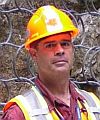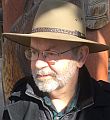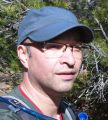WORKSHOP ON SUSTAINABLE STREAM RESTORATION, FEATURING SHELLY CREEK: “I will teach many simple techniques. Combined together they will start to replicate nature; we will all learn together,” states Dave Derrick, stream restoration innovator (April 2019)

Dave Derrick was a co-developer and co-instructor in the first American Society of Civil Engineers stream class, titled “An Introduction to Stream Investigation, Stabilization, and Restoration”. The morning lecture is a streamlined version of this course. Dave Derrick will cover the philosophy of restoration, channel dynamics and evolution, and bioengineering methods. Shelly Creek is the case study for improving in-stream hydraulic and environmental functions in fish-bearing streams along the east coast of Vancouver Island.










